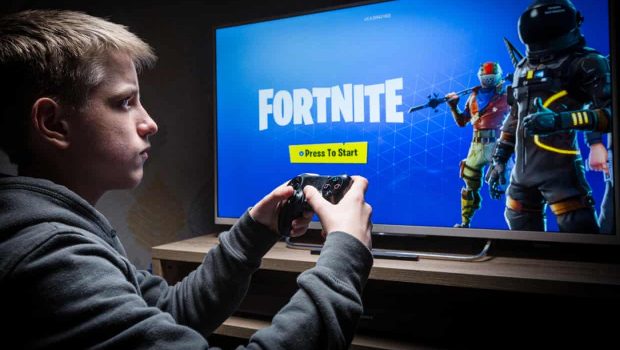Online gaming: how to help your kids play safe
Top tips for parenting in the online gaming world – Jackie Coates, Head of the Telstra Foundation
Parenting in the digital world can be new territory for some, and when it comes to online gaming here are my top tips:
Know what your kids are playing
There is no shortage of games for young people to access, the trick here is to make sure they are playing age appropriate games. Games come with ratings, just like movies so be sure to check them with your child and have a conversation about the ratings. But don’t stop there, you also want to know what games your child is playing so you can talk about their gaming in a positive way and stay connected. Ask your child to show you how to play – younger children love teaching the teacher. Stay in the loop about new games and educational games that can encourage creativity and problem solving. I find commonsensemedia parent website very helpful https://www.commonsensemedia.org/
Know who they play with
Multiplayer games are popular and why wouldn’t they be, it’s a social fun way to connect with friends. However, know who your child is playing with – are they friends or strangers, kids or adults? Are they using voice chat or text chat to communicate with each other? You need to understand the environment and set the controls you believe are right for your child. My ground rules are set parental controls for the younger children who may not be as savvy online and for my older teen, only have the voice and text channels open to friendship groups. Never share information to people you don’t know, the stranger danger message applies online too.
Teach them to play nice & play smart
I remind my kids that their actions in games can still impact others and I set some behaviour rules up front about my expectations re kindness, no bullying, keep it clean, nice, fun. I also talk to them about gaming protocols – things like don’t go idle in games or frequently drop out of multiplayer games, don’t team up against an individual or be over critical of other people’s playing styles or shortcomings, or crash into people on purpose if they are playing racing games. If someone is being inappropriate, block them and if you think the behaviour is really bad, report them. Some gaming consoles have player reputation systems – a great starting point to talk to your child about what behaviours are acceptable to both you, and the broader gaming community. In gaming you want to teach them the difference between competitive behavior and bullying, and between friendly banter and verbal harassment. Make sure your child knows not to share any personal details about themselves in games and make sure they set up profiles that use fake names. Teach them to play smart about their privacy and protect the privacy of others. You can also lodge an illegal or offensive digital content complaint via the Office of the Children’s eSafety Commissioner. Download our Parenting Tipsheet: Inappropriate Content (PDF, 161kB)
Know when to switch-off
It’s all too easy for kids to get deeply engrossed for hours while playing games, meanwhile homework, chores and other activities fall by the wayside. Before spiralling into long-term habits, it’s important to set time limits and guidelines to encourage regular screen breaks and a healthy balance between their online and offline worlds. I recommend a couple of hours max and avoid the all-nighters that some teens push for. This is an area you need to stay on top of and be consistent – make sure your rules are clear and enforced. In our house we have a schedule that limits opportunities for gaming – no games during the week as homework and family time takes precedence, Friday night we let the leash off a bit, and only short gaming stints on the weekend in between sport and other activities. Check your operating system, search engine, and specific gaming platforms for individual controls to help manage your kids’ experience. There are also ways to monitor activity and implement restrictions on specific devices. For our products and services, we recommend Telstra Mobile Protect for mobile devices and Telstra Broadband Protect for your home broadband. For example, With Telstra Broadband Protect you can set parental controls. You can block certain websites or set up Access Time Restrictions. This means you can block all internet access at selected times, and you can also set up Homework Time, which only blocks known social networks and gaming websites, but allows your kids access to the internet for study. You can also choose a filter from the industry endorsed Family Friendly Filter scheme.







